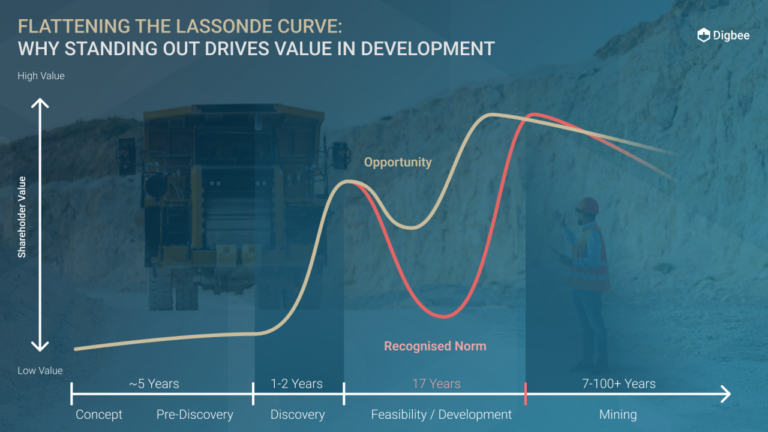FOR IMMEDIATE RELEASE
Digbee ESG Presentation at the G7
Presentation Title
Mining – the world’s catalyst for a low carbon economy?
Presentation Description
Engaging with key leaders both within and outside of the mining sector, Digbee highlights several key topics around Environmental, Social, and Governance (ESG) commitments to help educate, inform, and improve the perception of the mining industry. Acknowledging the mining sector’s legacy, the discussion considers the path ahead, pinpointing Digbee as the conduit for the success of ESG and assisting in the mining sector’s contribution to the world’s transition to a low carbon economy.
Schedule a Meeting
Jamie Strauss
Founder & CEO, Digbee Ltd
jamie@thedigbee.com
+44768510142
Digbee ESG in Context
What is ESG?
ESG (environmental, social, governance) is the big talking point of the day, driven by the Paris Accord of 20151 and with its successor, COP 262, taking place in-person this November in Glasgow and chaired by the UK. In essence, it is a set of criteria that encourages business and other organisations to be assessed in order to reduce emissions, improve biodiversity, improve engagement within society such as local stakeholders, employees, customers etc, as well as improving the governance of these enterprises.
The onset of COVID accelerated an ESG-related investment trend, and there is now substantial evidence to suggest improving ESG rated companies have lower idiosyncratic risks associated. The movement has thus seen a significant integration of ESG into investment decisions3.
Mining and ESG
Mining has a poor legacy, with past environmental disasters and human rights violations caused by a small proportion of the industry rightfully contributing to this image. That being said, our world demands mining more than ever before. Renewable energy sources require the mining of raw materials for their production. Electric cars rely on lithium and cobalt for their batteries, which face supply shortages by the mid 2020s4. Even an iPhone contains a number of different metals, including aluminium, cobalt, lithium, gold, silver, copper, tungsten, and tin to name a few5. It has been said, “If you can’t grow it, you have to mine it.”
Mining of most metals is here to stay and grow, yet the industry needs to improve its practices and its perception in society. Changes to mining practices over the last 20 years or so have had hugely positive effects on health and safety, as well as water conservation and quality. That being said, these advances must accelerate and cover many wider areas. Mining not only carries a greater burden of environmental impacts than many industries, but it is often closely associated with vulnerable communities. The impact of this sector embracing ESG is firstly critical to its, and thus the world’s, survival, but it can also have a dynamically positive impact on society. The Junior miners, those 2,600 public companies exploring and developing mines who are urgently needed by the world, have had no global standard that could easily be adopted to disclose their credentials. Thus confusion on what and how to disclose was prevalent. The sector realised that a solution was needed, or finance would ultimately dry up. This part of the industry is critical to a healthy ecosystem within the sector, ensuring new projects are discovered. Billions and trillions of funds are now held in green funds. Due to the historically negative perception of mining and inability to credibly track ESG within the mining sector, these sources of capital were flowing like a jet stream above and out of reach of the sector.
Digbee ESG
Jamie Strauss has 30+ years in the City of London financing mining companies, as well as being a non-executive director of public UK and Canadian companies. He was encouraged by major stakeholders such as BlackRock and Orion Mining Finance to come up with an ESG solution for the junior miners.
The solution is remarkable, as it brings efficiency and credibility to all mining companies, while bringing capital providers together to assess companies and projects in a standardised form on the key issues and principles of ESG. This sounds so simple but was unachievable before the inception of Digbee ESG.
It is a right-sized, future-looking set of frameworks that are aligned to the core global standards; it addresses greenwash head-on, improves efficiency of disclosure for management while rewarding them for the action they take. The frameworks have been endorsed by companies such as Newton, Orion Mine Finance, BlackRock, Smith & Williamson, BMO and others. The goal is to provide a practicable means for these companies to disclose, ensure and encourage continuous positive change on the ground, enable peer-to-peer comparison, and reward management appropriately. Stakeholders such as financial organisations can access the data freely, review scores or deep dive into the granularity of evidence to support answers.
References
- https://unfccc.int/process-and-meetings/the-paris-agreement/the-paris-agreement
- https://ukcop26.org/
- https://www.msci.com/our-solutions/esg-investing/what-is-esg
- https://www.forbes.com/sites/woodmackenzie/2019/07/24/can-metals-supply-keep-up-with-electric-vehicle-demand/?sh=92246576c9b5
- https://www.icmm.com
Media Contact
Emma Johnson
Marketing Manager, Digbee Ltd
emma@thedigbee.com
+447810680654
Press Release for Download
Press Release: Digbee ESG at G7 Summit (PDF)


